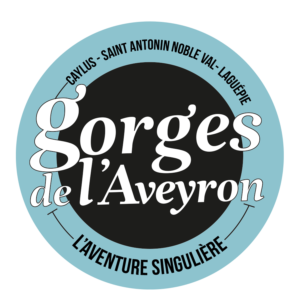A medieval town in a green setting! A picturesque south-western town in the Bonnette Valley, Caylus is a real crossroads. A medieval town in a green setting! A picturesque site in the south-west of France, in the Bonnette Valley, Caylus is a real crossroads, which goes a long way towards explaining the town's ancient existence and the significant development it underwent in the Middle Ages. Caylus was built on high ground around a castle. In 1211, the village was burnt down during the crusade against the Albigensians, but after 1226, it expanded beyond its original walls. The market square, lined with galleries, was created around 1247 and houses a covered market dating from 1505. The church, which until then had stood near the square, was rebuilt in the centre of the town in the 14th century. A polygonal apse was added between 1459 and 1470, and between 1347 and 1351 a new wall was built to counter the insecurity caused by the Hundred Years' War. As an administrative and judicial centre, Caylus enjoyed strong municipal power. The consuls played a major role in the town's development in the 13th century. They favoured a grid of regular blocks along the Rue Droite and to the east of the village, a sign of concerted urban planning. An active town in the Middle Ages, Caylus has preserved a wealth of 13th-16th century houses, in particular the Maison des Loups, built around 1350. The 14th-century church of Saint Jean Baptiste, the 15th-century market hall and the 13th-century Maison des Loups are all listed historic monuments. The same applies to the former Templar chapel and the Notre Dame des Grâces chapel at Lacapelle-Livron. Lovers of old masterpieces and "old stones" will be delighted by the many old houses and shops in the rue Droite, the château neuf, the ruins of the former royal castle and the Gauléjac pavilion. The immediate surroundings of the village are also of great tourist and cultural interest, with the Château de Cornusson in Parisot, the Château de Mondésir, the Château de Cas and the caves of Saint-Géry, to name but a few.
















